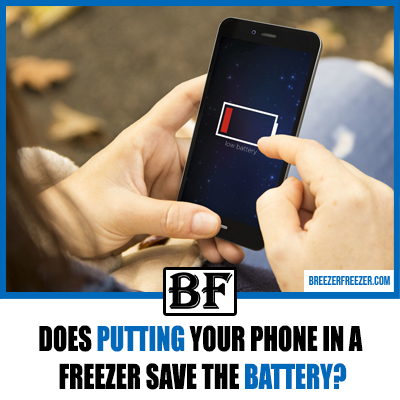The Fridge Freezer Sounds Like Running Water; What’s The Cause?
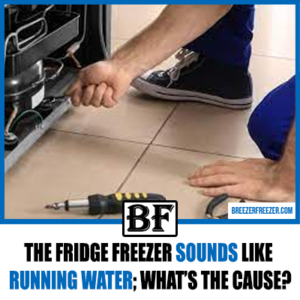
Since we use the fridge daily and always pack it with food and groceries, it starts to worry us when something unusual happens. To assure you, the refrigerator making a sound is completely normal, and most of it is not an issue.
In most cases, noises from the fridge like gurgling sounds, trickling or running water, hissing, etc., are usually how the fridge functions, and it works perfectly fine even when these sounds occur.
When the freezer or fridge sounds like boiling water, it could be most likely due to the automatic ice-maker. The water supply that connects the inlet valve when it reaches the appropriate temperature sends water to the inlet valve that allows water to flow into the ice-maker tray, and water starts to freeze. This cycle continues, which is not a problem.
It can also be due to condensation. It happens as you open and close the fridge; moist air comes in contact with cold air, causing contraction that causes air to be drawn in the drain tube, producing a gurgling sound.
Every fridge, be it from the same company or a different brand, is bound to make noises that differ from one another. To know if your fridge is functioning healthy, read the points below.
Fridge sounds, what’s normal and what’s not normal?
The sounds a fridge makes that are normal:
- The sound of fan speed. It changes due to the response in temperature when you frequently open the fridge.
- A gurgling or boiling sound when the fridge is running.
- Squeaking or chirping sound when you open and close the refrigerator, which happens due to the strong rubbers sealed on the door edges. With continuous use, the sound goes away.
- A ticking noise when the defrost turns on or off
- A humming sound when water is filling the ice-maker
- Automatic defroster that sounds like running water
- A loud noise when ice cubes fall in the storage bucket
The sounds a fridge makes which are not normal:
- Rattling sounds might be a sign that some of its functions are damaged
- The dripping sound might be indicating a leak somewhere inside the fridge
- A sound coming from the back of the fridge that sounds like fan blades hitting on something
- Compressors usually make a low buzzing sound, but when the sound becomes louder, there could be technical issues
Lastly, if there’s a puddle or leakage of water outside the fridge, it will stop the refrigerator from cooling or make any sounds.
Whats causing the problem
Clogged drain line: A clogged drain line can cause water to build up and make a dripping sound. The defrost drain line is responsible for removing the melted ice that accumulates in the freezer compartment. If the drain is clogged, it can’t flow out, causing it to build up and make a dripping sound.
Faulty water inlet valve: A faulty water inlet valve can cause water to leak into the fridge freezer and make a dripping sound. It is also possible that the valve is not closed properly, causing water to leak into the fridge freezer.
Damaged door seal: A damaged door seal can let in warm air, causing the ice cream to melt and make a dripping sound. A damaged door seal can also let in water and cause the sound of dripping.
Leaking refrigerant: A leak in the refrigerant line can cause the refrigerant to escape and make a dripping sound. This can also cause the fridge freezer to stop cooling properly.
Problem with the compressor: A problem with the compressor can cause the refrigerant to flow irregularly and make a gurgling noise. This could also cause the fridge freezer to stop cooling properly.
The build-up of frost in the freezer: The accumulation of frost in the freezer can block the circulation of the refrigerant and make a gurgling noise.
Blockages in the air circulation of the freezer: Blockages in the air circulation of the freezer can cause the refrigerant to flow irregularly and make a gurgling noise.
A malfunctioning fan: A malfunctioning fan can cause the refrigerant to flow irregularly and make a gurgling noise. This can also cause the fridge freezer to stop cooling properly.
The overall condition of the fridge freezer: The overall condition of the fridge freezer plays a crucial role in the proper functioning and noise level. An old or worn out fridge freezer may produce more noise and be more prone to malfunctions.
Why does my refrigerator sound like water is dripping
If your refrigerator sounds like water is dripping, it may be due to a clogged or malfunctioning defrost drain. The defrost drain is responsible for removing the melted ice that accumulates in the freezer compartment.
If the drain is clogged, the water can’t flow out, causing it to build up and make a dripping sound. Another cause could be a leak in the water supply line or a blocked water line.
It’s also possible that the sound could be coming from the refrigerator’s cooling system, such as a faulty valve or a leak in the refrigerant line.
To fix this issue it’s recommended to check the defrost drain and the water supply line, and if the problem persists, contact a professional to diagnose and fix the problem.
Freezer makes gurgling noise when i close the door
If your freezer makes a gurgling noise when you close the door, it may be due to the refrigerant flowing through the unit. The refrigerant is a liquid that is used to cool the freezer. As the compressor turns on and off, the refrigerant flow may cause the gurgling noise.
Another cause could be the build-up of ice in the freezer, which can block the circulation of the refrigerant and make a gurgling noise. It’s also possible that the noise is coming from a malfunctioning fan or a problem with the compressor.
To fix this issue it’s recommended to check for ice build-up and remove it, and if the problem persists, contact a professional to diagnose and fix the problem.
Conclusion
Mechanical and electronic appliances can cause problems from time to time, and the issue varies. Manufacturers provide a warranty that can help you get quick fixes, which covers up to a year.
Purchasing an extended warranty can also protect your refrigerator for a more extended period. If there seems to be an underlying problem that you cannot fix or knows its cause, you should call a maintenance specialist for help.
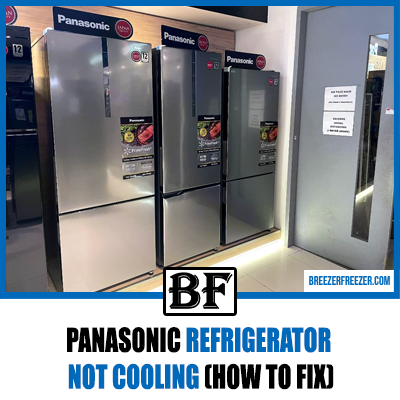
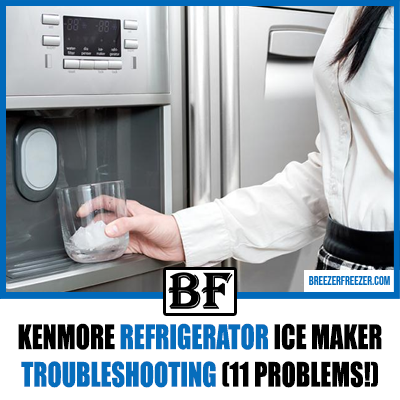
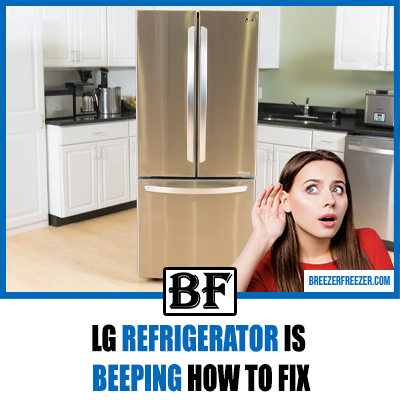
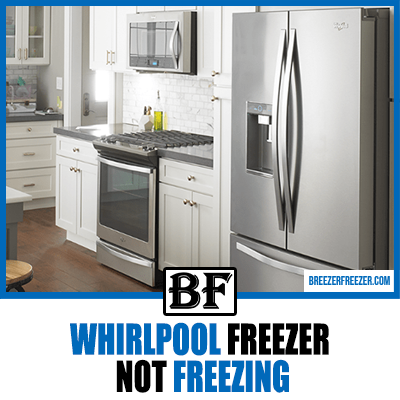
![Whirlpool Refrigerator Error [Solved]](https://breezerfreezer.com/wp-content/uploads/2022/08/Whirlpool-Refrigerator-Error-Solved.png)
